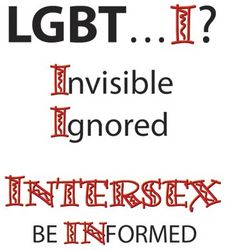Residents of Paradise in Nor-wood, Montego Bay, St James, told THE WEEKEND STAR that on Monday about midday, the teenager and her 20-odd-year-old lover who were sharing a home for over a year got into an altercation.
It is said that the lover expressed a desire to end the love affair. Her desire is said to have been more than just word of mouth as she is said to have packed some clothes and left the house.
The heartbroken teenager is then said to have gone on to the roof of the house and jumped off, crashing to the ground. She was rushed to hospital and according to the residents her legs were broken in the fall.
After hearing that she was injured, the grandmother of the teenager is reported to have turned up at hospital where she heard persons saying that her granddaughter was a lesbian.
The 60-odd-year-old woman is said to have fallen to the ground. She reportedly hit her head and ended up in the hospital.
"Di grandmother nuh live a Norwood still eno, but everybody know seh di two girl dem a lesbian. Dem nuh hide it and dem even live together so mi cyaa see how di granny shock til' she all drop down," Timmy, a resident said.
Residents and police personnel from the Montego Bay CIB say that the incident has since become a hot topic in the community. "A formal report was not made but we have heard of the incident. A lot of people are talking about it," an officer at the Montego Bay CIB said when contacted.
Efforts to confirm the teen's injuries were unsuccessful up to press time last night as hospital personnel said that information regarding patients could not be divulged over the telephone.
Pity we do not have any serious interventions at this time apart from referalls that often do not help enough or go far enough to deal with same sex relationship issues or conflict resolution that spill into the public domain. Rejections does not seem to be taken likely in our community due to the limited socialization leading to long term unions I surmise as living openly is already hard to navigate in our homophobic and growing lesbophobic society.
Young same gender lovers also need to have some guidance as to how to navigate and face certain realities especially in in the ending of a relationship or at best trial separation as an option as well. We all at some point want a life partner especially here so as to find solace from the problems of not being out and proud so some persons based on my observation find redress in a sense in a union and sexual contact. What tends to happen however also is a heteronormative construct being applied to how gay persons live out their relationships, so there is a dominant partner, gender roles mimicked in the union and a fatalistic approach when an abrupt end occurs or one partner is found to be cheating with the corresponding rage acted out in public as we have also seen in previous cases and tabloid entries such as this one:
Butch finds herself in some trouble for "non disclosure"
Much more work is needed to help persons involved gay romantic relationships.
Peace and tolerance
H


